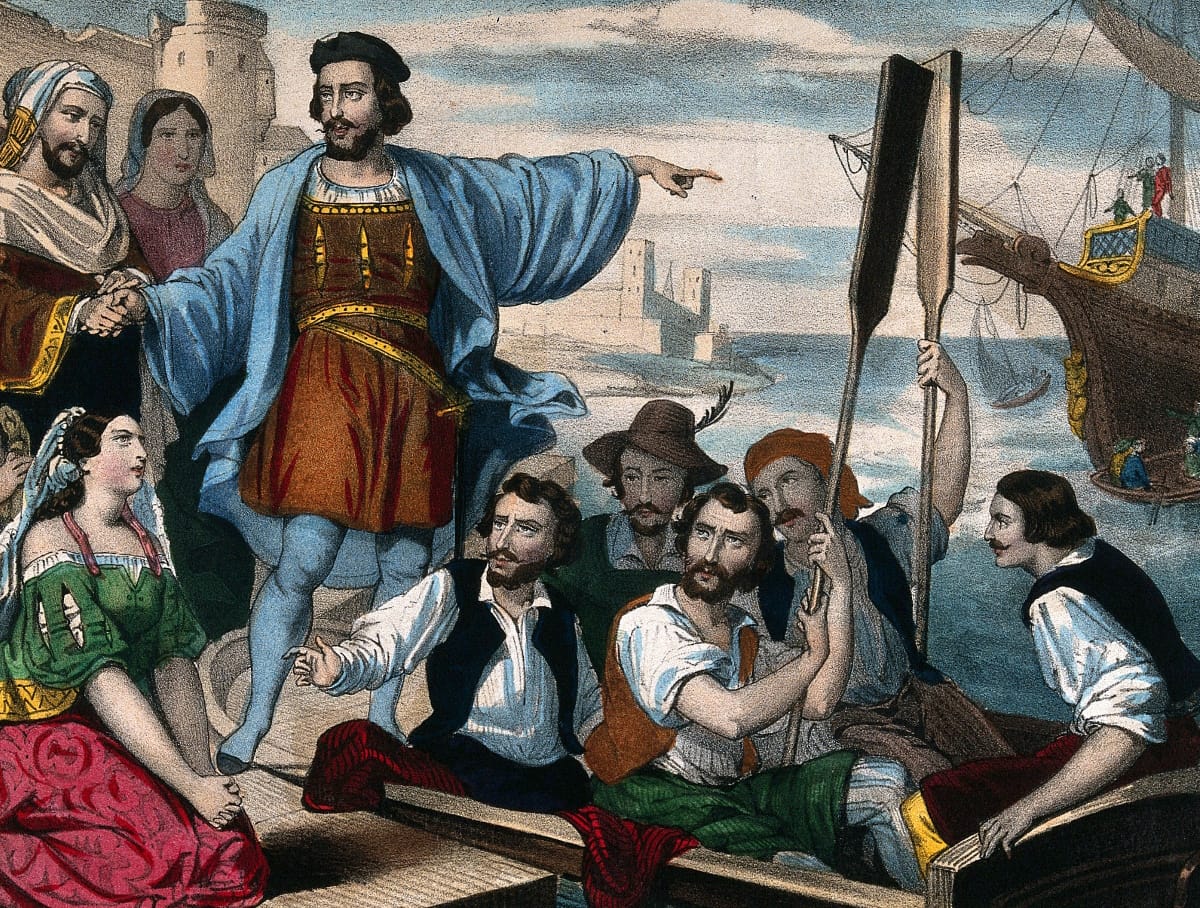Social networks like to quote a motivational statement attributed to the famous navigator. We checked to see if he said anything similar.
The phrase “You will never cross the ocean unless you have the courage to lose sight of the shore” is circulated as a Columbus quote on aphorism websites (Socratify.net, "Quotes from famous personalities", "Pearls of thought"), information resources (Rambler), V books, as well as on social networks. It gained particular popularity on Facebook (there are publications with 562, 464, 309, 215 And 187 reposts at the time of writing the analysis) and on VKontakte (679 reposts). The quote is well known in English-speaking world.
The final and most active part of the life of the Spanish navigator of Italian origin Christopher Columbus traveled, which did not prevent him from leaving behind a number of written documents, some of which have survived only in the form of copies, albeit sometimes incomplete. This is first and foremost diary of his first trip, letter to Spain about the results of swimming, "Book of Prophecies", "Book of privileges", the so-called O'Gorman manuscript and more nine lettersattributed to Columbus. However, neither in these documents nor in biographies, supposedly written by Hernando, the son of a traveler, nor in the three-volume fictionalized biography Columbus by the American writer Washington Irving “Verified” did not find statements similar to the quote we are interested in.
If you trace the history of the circulation of the quote on the Internet in Russian, you will find that even 10–15 years ago it was attributed to Columbus quite rarely. On some sites the aphorism is indicated without authorship; in a number of sources the name of the American writer, Nobel Prize laureate in literature appears William Faulkner.
As for the English-speaking segment of the Internet, there is a quote in the version “You cannot sail to new horizons until you have the courage to lose sight of the shore”, indeed, quite often attributed to Faulkner, however, also appears in printed publications only in the last two decades. It is not in the writings of the writer himself. However, the attribution to Columbus, judging by publications on the Internet and data from the Google Books resource, was assigned to the quote quite late, already in the 21st century. But this does not mean that the statement was little known at that time. So, in June 1992, in one of his speeches, he mentioned US President George Bush Sr. But in the magazine issue Life for September 17, 1971, the quote is given by another Nobel laureate, the French writer Andre Gide.
And indeed, in one of the episodes “Counterfeiters“(1925), Gide’s most famous novel, one of the main characters, the writer Edouard, admits: “I have often thought that in art, and in literature in particular, only those who rush into the unknown are important. You cannot discover a new land without first agreeing to lose sight of any shore for a long time..."
The statement with attribution to Gide became popular in the English-speaking world - for example, in 1970 it was included in the collection quotes The International Thesaurus of Quotations. At the same time, the very theme of the fate of “losing sight of the coast” was not new and was played out in different contexts many writers and earlier. It can be assumed that the phrase began to be attributed to Columbus simply because he was the most famous navigator in the West. One way or another, the real author of the statement is the French writer Andre Gide.
Cover photo: Wikimedia Commons
Read on topic:
If you find a spelling or grammatical error, please let us know by highlighting the error text and clicking Ctrl+Enter.






